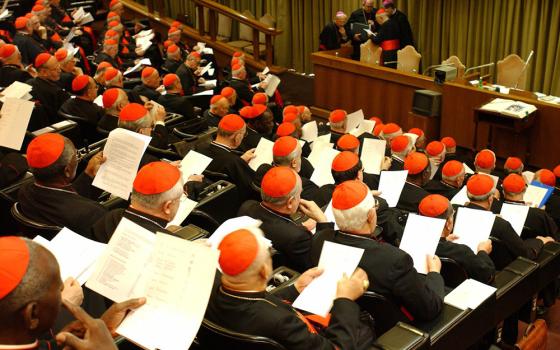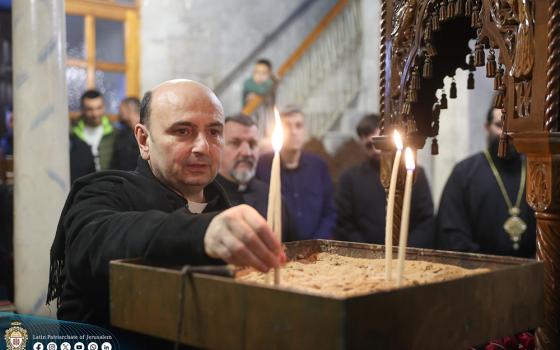[Editor's note: This article is from the archives of the Catholic News Service. It is dated Jan-14-2003.]
VATICAN CITY (CNS) -- After years of study, the Vatican's doctrinal congregation has sent church leaders a confidential document concluding that "sex-change" procedures do not change a person's gender in the eyes of the church.
Consequently, the document instructs bishops never to alter the sex listed in parish baptismal records and says Catholics who have undergone "sex-change" procedures are not eligible to marry, be ordained to the priesthood or enter religious life, according to a source familiar with the text.
The document was completed in 2000 and sent "sub secretum" (under secrecy) to the papal representatives in each country to provide guidance on a case-by-case basis to bishops. But when it became clear that many bishops were still unaware of its existence, in 2002 the congregation sent it to the presidents of bishops' conferences as well.
"The key point is that the (transsexual) surgical operation is so superficial and external that it does not change the personality. If the person was male, he remains male. If she was female, she remains female," said the source.
Bishop Wilton D. Gregory of Belleville, Ill., president of the U.S. bishops' conference, sent a brief letter to U.S. bishops in October informing them of the Vatican document and highlighting its instruction not to alter parish baptismal records, except to make a notation in the margin when deemed necessary.
"The altered condition of a member of the faithful under civil law does not change one's canonical condition, which is male or female as determined at the moment of birth," Bishop Gregory wrote.
The Vatican text defines transsexualism as a psychic disorder of those whose genetic makeup and physical characteristics are unambiguously of one sex but who feel that they belong to the opposite sex. In some cases, the urge is so strong that the person undergoes a "sex-change" operation to acquire the opposite sex's external sexual organs. The new organs have no reproductive function.
The document's conclusions close one area of controversial speculation that arose in Italy in the late 1980s when a priest publicly announced he had undergone a "sex-change" operation.
Given church teaching that only males can be validly ordained priests, the question posed in newspapers at the time was whether a priest who undergoes a "sex-change" operation remains a priest -- the answer is "yes" -- and whether a woman who undergoes the procedure can be ordained -- "no."
A Vatican source said the text was prepared largely by Jesuit Father Urbano Navarrete, now a retired canon law professor at Rome's Gregorian University.
In 1997, Father Navarrete wrote an article on transsexualism in an authoritative canon law journal and has been consulted by the doctrinal congregation on specific cases involving transsexualism and hermaphroditism.
The priest, citing confidentiality rules, declined to speak on the record to Catholic News Service for this story.
The Vatican document's specific points include:
-- An analysis of the moral licitness of "sex-change" operations. It concludes that the procedure could be morally acceptable in certain extreme cases if a medical probability exists that it will "cure" the patient's internal turmoil.
But a source familiar with the document said recent medical evidence suggested that in a majority of cases the procedure increases the likelihood of depression and psychic disturbance.
-- A provision giving religious superiors administrative authority to expel a member of the community who has undergone the procedure. In most cases of expulsion from religious life, the superior must conduct a trial.
-- A recommendation of psychiatric treatment and spiritual counseling for transsexual priests. It suggests they can continue to exercise their ministry privately if it does not cause scandal.
-- A conclusion that those who undergo sex-change operations are unsuitable candidates for priesthood and religious life because of mental instability.
-- A conclusion that people who have undergone a sex-change operation cannot enter into a valid marriage, either because they would be marrying someone of the same sex in the eyes of the church or because their mental state casts doubt on their ability to make and uphold their marriage vows.
-- An affirmation of the validity of marriages in which one partner later undergoes the procedure, unless a church tribunal determines that a transsexual disposition predated the wedding ceremony.
END
01/14/2003 2:33 PM ET
Copyright (c) 2003 Catholic News Service/U.S. Conference of Catholic Bishops



